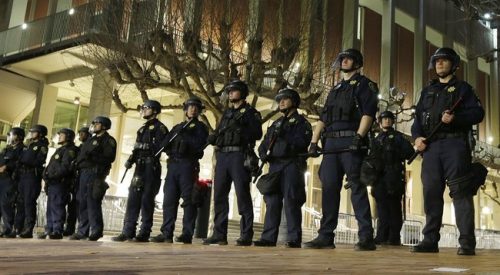Reporters uncovered that a faction of moderate Democrats wanted to reopen the government, but party leaders persuaded them to hold off, turning what was billed as a GOP-driven shutdown into a Democratic strategy that prolonged the pain.
The Axios account makes a simple, blunt case: moderates were ready to cut a deal to end the shutdown, and Democratic leaders told them not to. That flip flips the common talking point that Republicans alone engineered the shutdown, because internal Democratic politics clearly played the decisive role. Seeing this, it’s obvious the story is not just about policy disagreement but about calculated political theater from the Democratic leadership.
According to reporting, eight Democratic senators ultimately moved toward the same framework Republicans had offered in mid-October, signaling bipartisan appetite for a stopgap. The deal reportedly funds SNAP through September 2026, extends government funding through January 30, and creates time for a vote on expiring health insurance subsidies. The White House matched that framework, which undercuts the narrative that Democrats were fighting a principled stand rather than holding out for political leverage.
When those moderates leaned into the agreement, Senate leaders pushed back and persuaded them to hold the line until open enrollment began. That intervention turned a potential quick end into a drawn-out standoff that inflicted real damage on people and services. House Democrats, furious they hadn’t gotten concessions, started rallying against reopening, which only reinforced the impression that prolonging the shutdown was a deliberate Democratic tactic.
As Senate Minority Leader Chuck Schumer publicly battled Republicans over the government shutdown, he was privately cajoling a group of moderates not to fold before November.
So much for that whole “Republican shutdown” narrative. https://t.co/LkydL8l6Hn
— Greg Price (@greg_price11) November 10, 2025
Why it matters: Democrats are blaming Schumer (D-N.Y.) for not prolonging the shutdown. In reality, it could have been much shorter.
Two weeks into the shutdown, a group of moderates told Schumer they were ready to vote to open the government, according to three sources familiar with the conversation.
It’s unclear if that group was big enough to end the shutdown. But Schumer persuaded the moderates to hold out until at least the beginning of November, when open enrollment for the Affordable Care Act began.
In mid-October, he made it clear to his entire caucus that he was likely to come out against the emerging bipartisan deal that a group of moderate senators were pushing.
Zoom in: At the very beginning of the shutdown, Schumer was put on notice that a group of moderate Democrats didn’t want to pick the government shutdown fight in the first place.
That block of details matters because it reframes responsibility: if moderates were willing, and leadership told them to wait, then the shutdown’s length and impact were choices made inside the Democratic caucus. The public was left to shoulder lost paychecks, halted services, and disrupted benefits while party leaders played a longer strategic game. That is a political calculation with human costs, and voters will remember how funding and benefits were used as bargaining chips.
The practical consequences were immediate. Federal employees faced pay uncertainty, vulnerable families worried about nutrition assistance timing, and agencies scrambled to prioritize essential functions. Even when the compromise eventually aligned with what Republicans had proposed earlier, the delay had already done damage that can’t be erased by paperwork. Forty days of disruption added real hardship for little to show for it beyond political messaging.
Spin will follow from every side, but the facts are plain: a bipartisan deal existed, moderates were ready to take it, and Democratic leaders chose not to. That sequence makes the dominant narrative collapse under its own contradictions and exposes the shutdown as a maneuver driven by internal Democratic strategy. The political calculus prioritized messaging over people, and that distinction matters to voters who watched the fallout in real time.






